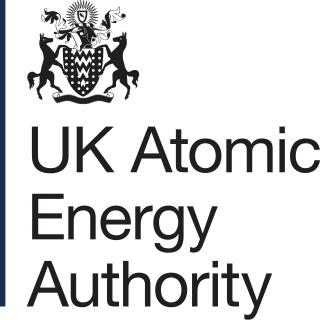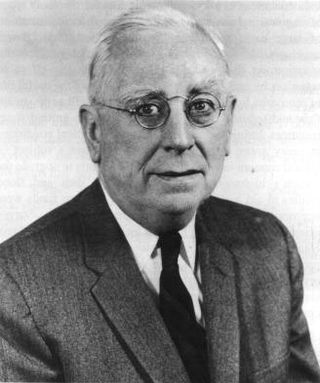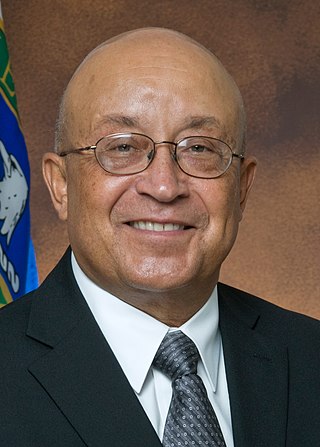Related Research Articles

Radioactive waste is a type of hazardous waste that contains radioactive material. Radioactive waste is a result of many activities, including nuclear medicine, nuclear research, nuclear power generation, nuclear decommissioning, rare-earth mining, and nuclear weapons reprocessing. The storage and disposal of radioactive waste is regulated by government agencies in order to protect human health and the environment.

The Yucca Mountain Nuclear Waste Repository, as designated by the Nuclear Waste Policy Act amendments of 1987, is a proposed deep geological repository storage facility within Yucca Mountain for spent nuclear fuel and other high-level radioactive waste in the United States. The site is on federal land adjacent to the Nevada Test Site in Nye County, Nevada, about 80 mi (130 km) northwest of the Las Vegas Valley.

Sellafield, formerly known as Windscale, is a large multi-function nuclear site close to Seascale on the coast of Cumbria, England. As of August 2022, primary activities are nuclear waste processing and storage and nuclear decommissioning. Former activities included nuclear power generation from 1956 to 2003, and nuclear fuel reprocessing from 1952 to 2022.

The United Kingdom Atomic Energy Authority is a UK government research organisation responsible for the development of fusion energy. It is an executive non-departmental public body of the Department for Energy Security and Net Zero (DESNZ).

Dounreay is a small settlement and the site of two large nuclear establishments on the north coast of Caithness in the Highland area of Scotland. It is on the A836 road nine miles west of Thurso.
Nirex was a United Kingdom body set up in 1982 by the UK nuclear industry to examine safe, environmental and economic aspects of deep geological disposal of intermediate-level and low-level radioactive waste (LLRW).

Nicholas Hugh Minchin is an Australian former politician and former Australian Consul-General in New York, USA. He previously served as a Liberal member of the Australian Senate representing South Australia from July 1993 to June 2011, and a former cabinet minister in the Howard government.

The Nuclear Decommissioning Authority (NDA) is a non-departmental public body of the Department for Energy Security and Net Zero formed by the Energy Act 2004. It evolved from the Coal and Nuclear Liabilities Unit of the Department of Trade and Industry. It came into existence during late 2004, and took on its main functions on 1 April 2005. Its purpose is to deliver the decommissioning and clean-up of the UK's civil nuclear legacy in a safe and cost-effective manner, and where possible to accelerate programmes of work that reduce hazard.

The Nuclear Waste Policy Act of 1982 is a United States federal law which established a comprehensive national program for the safe, permanent disposal of highly radioactive wastes.
Nuclear power in the United Kingdom generated 16.1% of the country's electricity in 2020. As of August 2022, the UK has 9 operational nuclear reactors at five locations, producing 5.9 GWe. It also has nuclear reprocessing plants at Sellafield and the Tails Management Facility (TMF) operated by Urenco in Capenhurst.
Nuclear decommissioning is the process leading to the irreversible complete or partial closure of a nuclear facility, usually a nuclear reactor, with the ultimate aim at termination of the operating licence. The process usually runs according to a decommissioning plan, including the whole or partial dismantling and decontamination of the facility, ideally resulting in restoration of the environment up to greenfield status. The decommissioning plan is fulfilled when the approved end state of the facility has been reached.

High-level radioactive waste management addresses the handling of radioactive materials generated from nuclear power production and nuclear weapons manufacture. Radioactive waste contains both short-lived and long-lived radionuclides, as well as non-radioactive nuclides. In 2002, the United States stored approximately 47,000 tonnes of high-level radioactive waste.

Thomas Brennan Nolan was an American geologist who was director of the United States Geological Survey (USGS) from 1956 to 1965. The mineral nolanite is named in his honor and he was an elected member of the American Academy of Arts and Sciences, the United States National Academy of Sciences, and the American Philosophical Society. He was generally known as Tom Nolan.
The Deep Geologic Repository Project (DGR) was a proposal by Ontario Power Generation (OPG) in 2002 for the site preparation, construction, operation, decommissioning and abandonment of a deep geological radioactive waste disposal facility for low and intermediate-level radioactive waste (L&ILW). In 2005, the municipality of Kincardine, Ontario volunteered to host the facility located on the Bruce nuclear generating station adjacent to OPG's Western Waste Management Facility (WWMF). The facility would have managed L&ILW produced from the continued operation of OPG-owned nuclear generating stations at the Bruce, Pickering Nuclear Generating Station and Darlington Nuclear Generating Station in Ontario. In May 2020, after 15 years of environmental assessment, OPG withdrew its application for a construction license on Saugeen Ojibway Nation Territory.

Lynas Rare Earths, Ltd. is an Australian rare-earths mining company with two major operations: a mining and concentration plant at Mount Weld in Western Australia, and the Lynas Advanced Materials Plant (LAMP) in Kuantan, Malaysia. The company was founded in the 1990s and is headquartered in Perth, Western Australia.

Magnox Ltd, currently trading as Nuclear Restoration Services, is a wholly-owned subsidiary of the Nuclear Decommissioning Authority (NDA), responsible for the safe decommissioning of British nuclear sites. Originally created for the management of Magnox nuclear reactors, it went through various forms of organisation throughout privatisation of the nuclear industry, until coming into NDA ownership in 2019. It rebranded to NRS in October 2023.

Sir Alexander Norman Halliday is a British geochemist and academic who is the Founding Dean Emeritus of the Columbia Climate School, and Former Director of the Earth Institute at Columbia University. He joined the Earth Institute in April 2018, after spending more than a decade at the Department of Earth Sciences at the University of Oxford, during which time he was dean of science and engineering. He is also a professor of Earth and Environmental Sciences at Columbia University.
Konrad Bates Krauskopf was an American geologist, a pioneer in geochemistry, noted for his work in radioactive waste disposal. Krauskopf led expeditions to Mexico, Norway, the Sierra and the Pacific Northwest. Krauskopf was a geology professor at Stanford University, and a member of the National Academy of Sciences.

Warren Fletcher "Pete" Miller Jr. is an American nuclear engineer known for his work in the areas of computational physics, radioactive waste management, transport theory, nuclear reactor design and analysis, and the management of nuclear research and development programs.

Rodney Charles Ewing is an American mineralogist and materials scientist whose research is focused on the properties of nuclear materials.
References
- ↑ "Past Presidents". The Geological Society. Archived from the original on 17 February 2012. Retrieved 8 February 2012.
- ↑ "Prof Charles Curtis". University of Manchester. Retrieved 8 February 2012.[ permanent dead link ]
- 1 2 3 "Board of Directors". Dounreay Site Restoration Limited. Retrieved 7 February 2012.
- ↑ "Radioactive Waste Management Advisory Committee". Department for Environment, Food and Rural Affairs. Archived from the original on 23 May 2008.